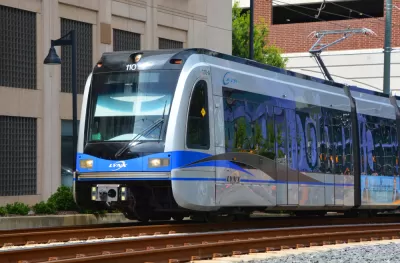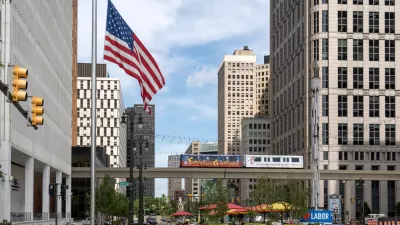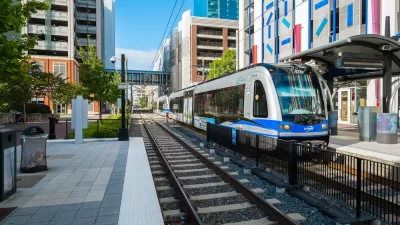Even if voters approve a new one-cent transit sales tax, will Charlotte be able to deliver on its promise of two new commuter rail lines and a new bus rapid transit line?

For the last four years, Charlotte and its transit agency have been working on a $13.5 billion rail-focused transportation plan. The plan hinges on the passage of a one-cent transit sales tax, 80 percent of which was originally planned to go toward building three new rail lines (the city currently only has one). But, according to an article from local NPR news outlet WFAE 90.7, recent political maneuverings to gain support of Republican legislators could be eroding the city’s ability to deliver on its ambitious transit promises.
“In a bid to win support from Republican legislators who want more money for roads, Charlotte and the Mecklenburg towns have agreed to a new framework that caps the amount of new money spent on trains at 40%. Roads would get 40% of new sales tax revenue and 20% would be set aside for things like buses,” writes Steve Harrison. As a result, the proposed — and most expensive — 26-mile Silver Line project from uptown to the town of Matthews will be replaced with bus rapid transit. “Matthews leaders are livid,” and the mayor is threatening to tell his residents to vote no on the new tax referendum, which could appear on the ballot in November 2025.
But upsetting Matthews voters could be the least of the transportation plan’s problems, Harrison reports. “It’s hard to see how less than a half-cent sales tax — 40% of a one-cent tax — can pay to build and operate all those lines.” Not to mention, Charlotte’s plan hinges on federal transit funding that is far from guaranteed. “In other words, Charlotte is still overpromising,” Harrison concludes.
FULL STORY: Charlotte looks like it's still overpromising on transit

Planetizen Federal Action Tracker
A weekly monitor of how Trump’s orders and actions are impacting planners and planning in America.

Maui's Vacation Rental Debate Turns Ugly
Verbal attacks, misinformation campaigns and fistfights plague a high-stakes debate to convert thousands of vacation rentals into long-term housing.

Restaurant Patios Were a Pandemic Win — Why Were They so Hard to Keep?
Social distancing requirements and changes in travel patterns prompted cities to pilot new uses for street and sidewalk space. Then it got complicated.

In California Battle of Housing vs. Environment, Housing Just Won
A new state law significantly limits the power of CEQA, an environmental review law that served as a powerful tool for blocking new development.

Boulder Eliminates Parking Minimums Citywide
Officials estimate the cost of building a single underground parking space at up to $100,000.

Orange County, Florida Adopts Largest US “Sprawl Repair” Code
The ‘Orange Code’ seeks to rectify decades of sprawl-inducing, car-oriented development.
Urban Design for Planners 1: Software Tools
This six-course series explores essential urban design concepts using open source software and equips planners with the tools they need to participate fully in the urban design process.
Planning for Universal Design
Learn the tools for implementing Universal Design in planning regulations.
Heyer Gruel & Associates PA
JM Goldson LLC
Custer County Colorado
City of Camden Redevelopment Agency
City of Astoria
Transportation Research & Education Center (TREC) at Portland State University
Jefferson Parish Government
Camden Redevelopment Agency
City of Claremont




























